Planning support
Curriculum planning is a key phase in designing effective teaching and learning for students. Effective planning involves teachers, instructional leaders and school leaders organising and bringing together the relevant curriculum content, the 'what to teach’; using effective teaching strategies, the 'how to teach’; and ensuring assessment is designed to measure learning and provide targeted feedback.
Your state or territory curriculum and assessment authority or board provides specific planning guidance. While most schools already have planning documents that they use, guidance may be sought from the following resources, whether planning a whole-school scope and sequence, units of work or individual lessons.
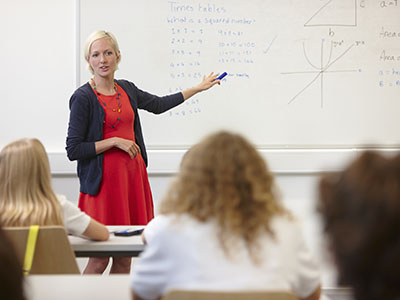
Curriculum planning
Effective planning
Effective planning involves teachers knowing the curriculum and knowing their students' strengths and learning needs. Whatever the starting point for planning, a fundamental part of the process is interpreting the curriculum documents and teaching resources, ensuring that what teachers teach is relevant to their class of students.
Planning often incorporates a series of steps. Many teachers consider what their students know as a starting point, keeping student needs at the centre of their planning. The Australian Curriculum: Mathematics shows what students should be taught at each year level. The curriculum and assessment is considered and informs the planning of the learning sequence.
In planning the learning sequence, teachers set learning goals and success criteria, select engaging learning tasks, and sequence learning to build on their students’ skills and knowledge. They set authentic tasks that encourage students to think deeply, problem-solve and reason. They prepare scaffolds for students to use, as needed.
In planning teams, teachers can share approaches to a lesson to discuss strategies and identify relevant approaches. In this video, teachers from Westgarth Primary School think about student responses in relation to a learning task.

Purposeful planning that identifies learning outcomes and success criteria
Listen to this podcast about purposeful planning and learning outcomes. In this episode, Dr Emily Ross from the University of Queensland discusses the importance of planning for effective teaching.
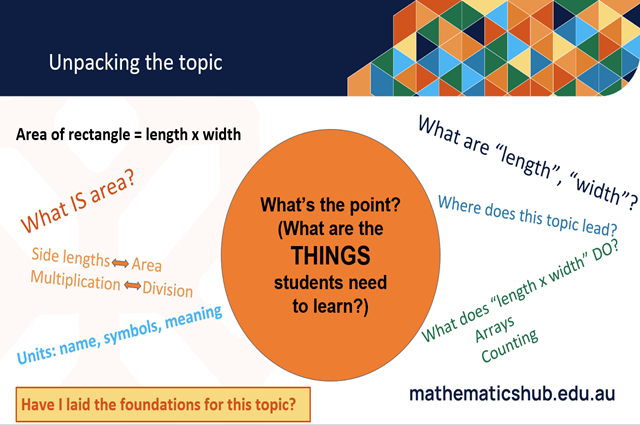
Explicit teaching in mathematics: purposeful planning
In this webinar, Associate Professor Helen Chick, from the University of Tasmania, discusses purposeful planning when thinking through and constructing maths lessons using the explicit teaching model. She details how careful planning of lessons is just as important as teaching the lesson and how it can enable explicit teaching to be successful.
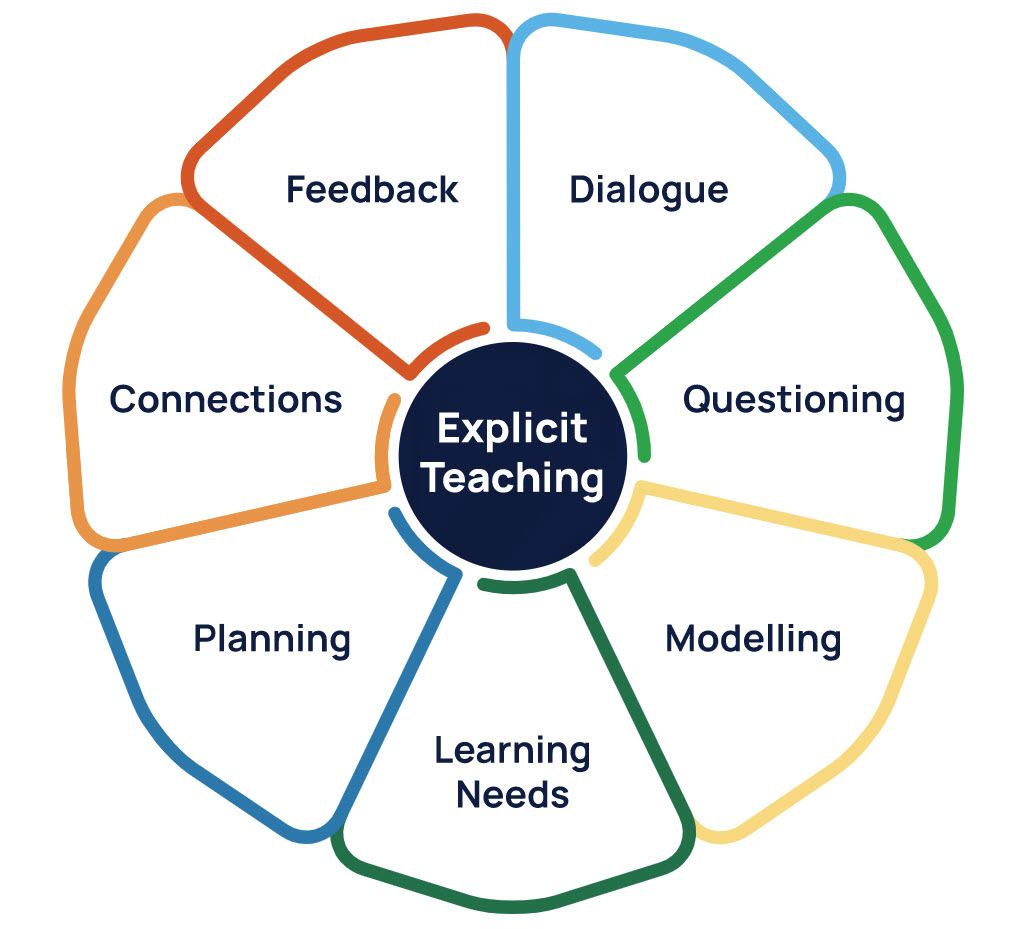
To learn more about effective planning in mathematics, register for our free self-paced, professional leaning course, featuring five modules designed around the seven components of explicit teaching.
Whole-school planning
In the primary years of schooling, it is important for teachers to know which mathematical concepts are covered in each year of a student's schooling, and understand how these concepts are built upon and developed as the student progresses throughout their primary years. A whole-school plan captures this sequence of developing mathematical content. This plan can also enable connections to be made across other learning areas and identify where relevant numeracy skills can be used and developed.
In the secondary years, subjects are usually taught separately. However, there is opportunity to make connections beyond the classroom, and to make connections across subjects. Having a whole-school plan enables a clear sequence of learning and allows for meaningful connections to be identified and made across subjects and year levels.
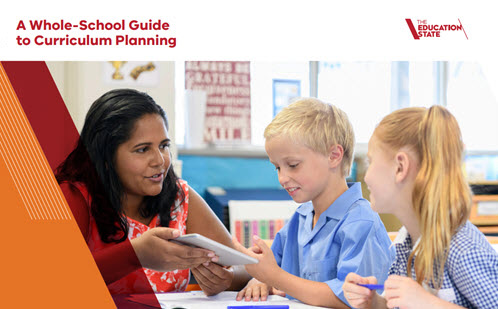
This whole-school guide to curriculum planning from the Victorian Department of Education and Training aims to support teachers, instructional leaders and school leaders to plan and implement the curriculum at every layer of the school. The guide presents a series of guiding questions and key actions to support planning for the whole school, for a curriculum area or year level, and for units and lessons.
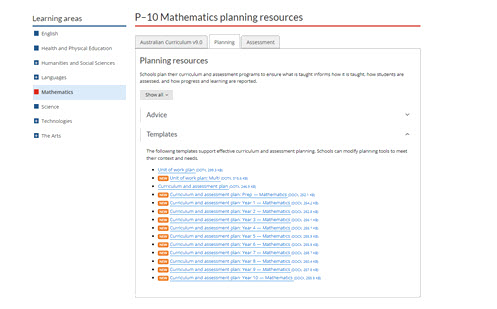
Templates for whole-school planning
The Department of Queensland has developed planning templates for whole-school curriculum based on the Australian Curriculum V9 that provides:
- teaching and learning term overviews
- balance and coverage of general capabilities and cross-curriculum priorities
- a whole-school assessment plan including range, balance and timing.

Knowledge frameworks of Aboriginal and Torres Strait Islander peoples
When relationships between land, language, culture, time and place are considered in the planning of teaching and learning, teachers ensure they have considered the holistic perspectives of mathematics. Teachers could consider using Uncle Ernie Grant’s teaching and learning framework to incorporate the Aboriginal and Torres Strait Islander Histories and Cultures cross-curriculum priority into their lesson planning.
Community engagement
When implementing the Australian Curriculum: Mathematics, schools should consider diverse histories, cultures, languages and practices that students bring from their families and communities. Utilising diverse teaching and learning approaches supports building connections between students’ homes and social contexts. Connections with families and communities can inform the context of curriculum and pedagogies to ensure all students gain equitable access to learning. Collaborative, two-way processes between teachers and local communities have previously led to increased numeracy achievements (Bodkin-Andrews, 2016; Han, 2019; Lowe et al., 2019).
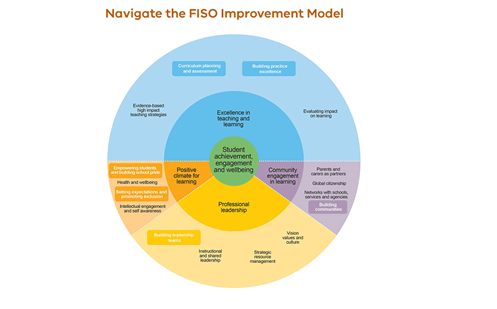
Community engagement in learning research evidence base
There is a growing research evidence base supporting the link between school partnerships and networks and enhanced student outcomes. The contemporary literature recognises that collaboration beyond the school, including with parents/carers/kin, services, industry and networks, is a critical driver of school improvement.
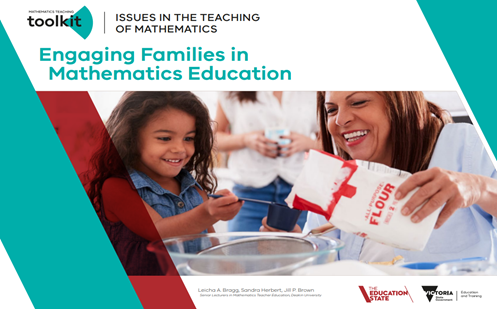
Engaging families in mathematics education
This report provides guidance as to how to effectively engage families in their child’s mathematics education.
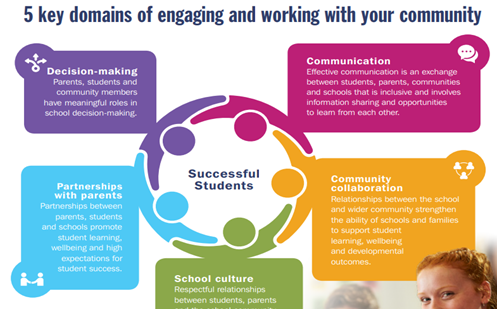
Engaging and Working with your Community Framework
This resource developed by WA DET provides guidance about how to effectively engage with the community.
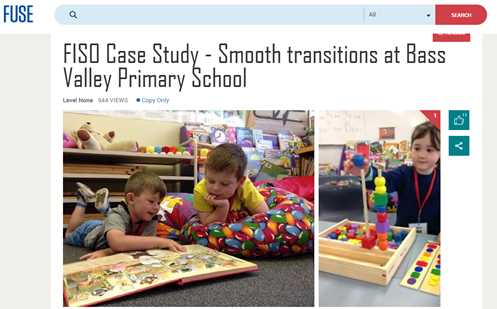
FISO Case Study - Smooth transitions at Bass Valley Primary School
Bass Valley Primary School's six-month pre-Prep 'Ready, Set, Go!' program was implemented to address low-level literacy and numeracy skills, lack of opportunity for early childhood education and difficult transitions into school. The program has also helped to build parent and community engagement.
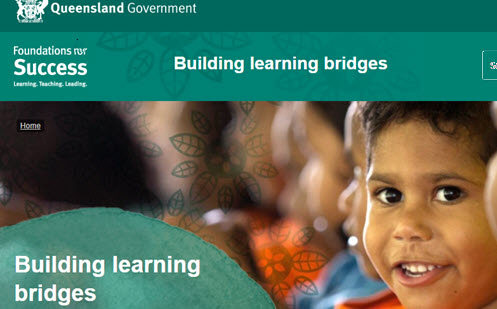
To increase community engagement in schools, teachers may require support in developing trusting two-way partnerships with Indigenous families and communities. Queensland Department of Education advocate the use of Foundations for Success, which provides guidance about ways to engage your community. Further information on this approach can be found here.
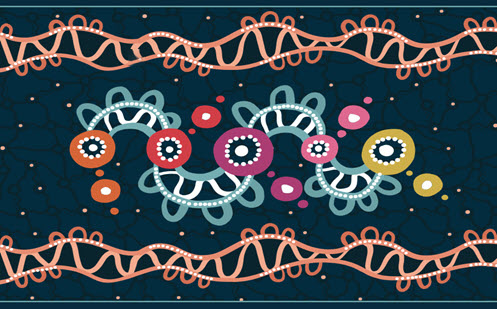
Teachers can find support to engage families and communities through the Your Story Your Journey interactive website.
STEM
STEM – Science, Technology, Engineering and Maths (or STEAM when including The Arts) are learning modules that integrate these disciplines in a meaningful way, through the use of relatable contexts. Students are given real-world opportunities to realise the importance and relevance of mathematics in all aspects of daily life.
See also Girls in Stem Toolkit (GiST) for advice on how to engage girls in STEM
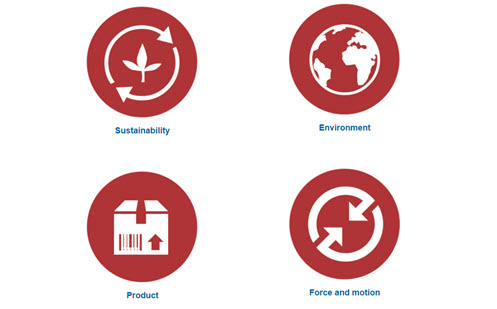
Showcasing how interdisciplinary units can be developed within the Australian Curriculum that focus on STEM.
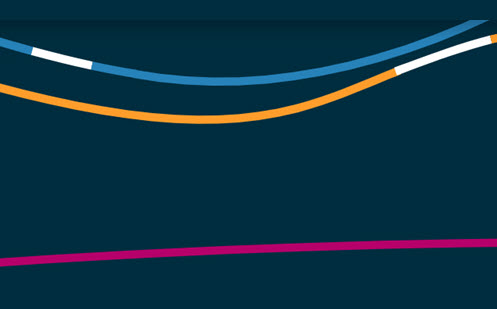
Part of the STEM in schools initiative, this toolkit is an online resource to help teachers, school leaders, industry partners and others deliver high-quality STEM initiatives in schools.
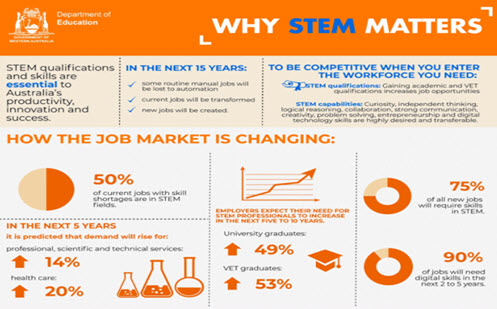
This resource explains why STEM is an important part of building the modern workforce. With links and video to resources showing the skills that students develop as a result of taking part in STEM activities.